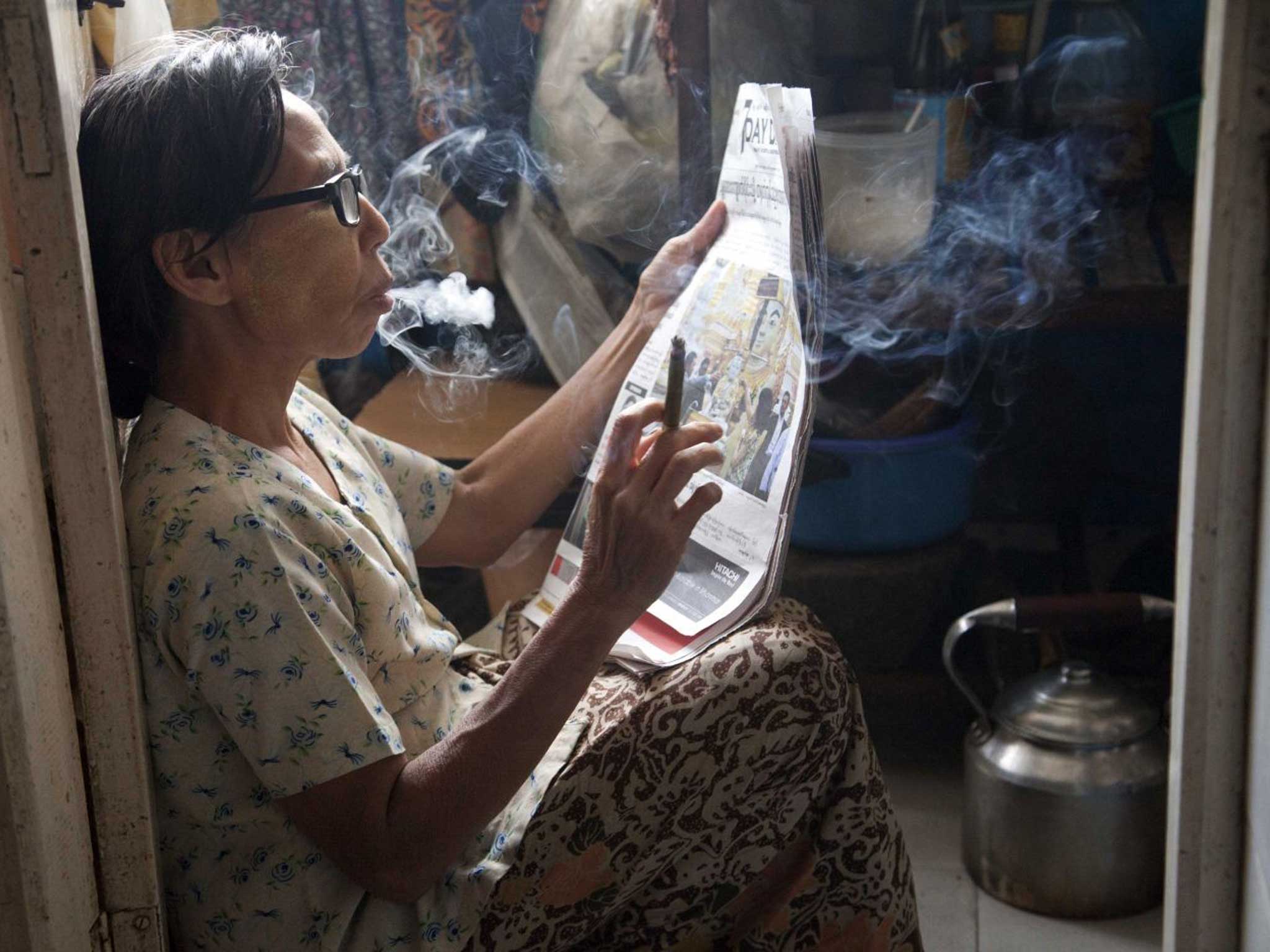President jails brave journalists – and Burma heads back to the bad old days
One recognises precisely the paranoid hand of the generals


Your support helps us to tell the story
From reproductive rights to climate change to Big Tech, The Independent is on the ground when the story is developing. Whether it's investigating the financials of Elon Musk's pro-Trump PAC or producing our latest documentary, 'The A Word', which shines a light on the American women fighting for reproductive rights, we know how important it is to parse out the facts from the messaging.
At such a critical moment in US history, we need reporters on the ground. Your donation allows us to keep sending journalists to speak to both sides of the story.
The Independent is trusted by Americans across the entire political spectrum. And unlike many other quality news outlets, we choose not to lock Americans out of our reporting and analysis with paywalls. We believe quality journalism should be available to everyone, paid for by those who can afford it.
Your support makes all the difference.It was a scoop any Western journalist would have been proud of: one can easily imagine it running in The New Yorker under Seymour Hersh’s illustrious byline. Four journalists working for Burma’s Unity Journal claimed to have uncovered a secret chemical-weapons factory run by former generals, Chinese technicians and government officials. But instead of winning an award, the four journalists and their boss are now serving 10 years in jail, with hard labour.
The law under which they were charged, the Burma State Secrets Act, was a colonial measure, enacted by the British in 1923. Their arrest was ordered by President Thein Sein – a man eulogised by the outside world as a courageous reformer, who ushered in a new era of freedom and development.
Was the report a sensational discovery, a bold and brilliant job of reporting, or a mere fabrication? We will probably never know: the government said it was “baseless”, but failed to open up the military facility to other reporters. Instead, in the time-honoured manner of Burmese generals, the hedgehog rolled into a ball.
“If media freedom threatens national security,” the President told The Mirror, a state-run daily, “… we will take effective action under existing laws.”
This is all very dispiriting. And it must be especially so for US Secretary of State John Kerry, heading to Naypyidaw, the Burmese capital, for a regional summit this weekend. Burma was supposed to have changed beyond recognition since Thein Sein, himself a former general, became president in 2011. But in this process of legalised repression and draconian imprisonment, one recognises precisely the regressive, paranoid hand of the generals who held Burma in thrall for 50 years.
The Asean Regional Forum, as the summit is called, is a feather in President Thein Sein’s cap. It was in order to be considered worthy of the honour of hosting such events, and the kudos of welcoming the likes of Mr Kerry, that he went out on a limb, rolling back press censorship, freeing most political prisoners and enacting other important reforms. First the EU then the US lifted sanctions that had frozen trade relations with the West for decades. Mr Obama welcomed his Burmese counterpart to the Oval Office, and for the first overseas outing of his second term headed straight for the one foreign destination that he could claim as an unblemished success story of his first four years.
Unblemished it is no more. The legalised assault on Unity Journal’s brave journalists was just like the bad old days. Courageous journalism suddenly became very much harder to do.
Now the sanctions are all gone but the job of reform is only half done. And while the Unity Journal’s staff are paying an outrageous price for doing their jobs, the government is digging in its heels and refusing even to consider further, much-needed reforms. In the past three months, a coalition of opposition forces has been holding rallies to demand radical reform of the constitution, designed to cut back the dominating role of the military – they hold 25 per cent of parliamentary seats, for example – and remove the arbitrary rule that prevents Aung San Suu Kyi from running for president.
A petition demanding these changes has gathered five million signatures. But Thein Sein and his colleagues have shown no interest whatsoever in even discussing them. President Obama is said to be considering a second visit later in the year to this lonely outpost of presidential achievement. John Kerry should make it amply clear that the visit is not going to happen unless President Thein Sein pays serious attention to reforming the constitution.
Join our commenting forum
Join thought-provoking conversations, follow other Independent readers and see their replies
Comments